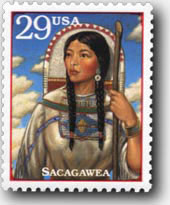
Worksheets and No Prep Teaching Resources
"The Wild West"
 Worksheets and No Prep Teaching Resources |
"The Wild West" |
| edHelper's suggested reading level: | grades 4 to 6 | |
| Flesch-Kincaid grade level: | 9.96 |
| Print "The Wild West" (font options, pick words for additional puzzles, and more) |
|
| Quickly print reading comprehension |
|
| Print a proofreading activity |
| Leave your feedback on "The Wild West" (use this link if you found an error in the story) |
|
"The Wild West"
By Joyce Furstenau |

|
 1 The story is told that the Indians (Native Americans) lived here for 500 generations before the "newcomers" came and transformed it. This northwestern corner of the continent was home to the Plateau Indians; the Nez Perce, Okanogan, Spokane, Yakama, and Colville tribes. The coastal Indians or "canoe Indians" included the Chinook, Clallam, Clatsop, Nisqually, Nooksack, and Puyallup who lived west of the Cascade Mountains. Every tribe used the land and natural resources it provided for their existence.
1 The story is told that the Indians (Native Americans) lived here for 500 generations before the "newcomers" came and transformed it. This northwestern corner of the continent was home to the Plateau Indians; the Nez Perce, Okanogan, Spokane, Yakama, and Colville tribes. The coastal Indians or "canoe Indians" included the Chinook, Clallam, Clatsop, Nisqually, Nooksack, and Puyallup who lived west of the Cascade Mountains. Every tribe used the land and natural resources it provided for their existence.